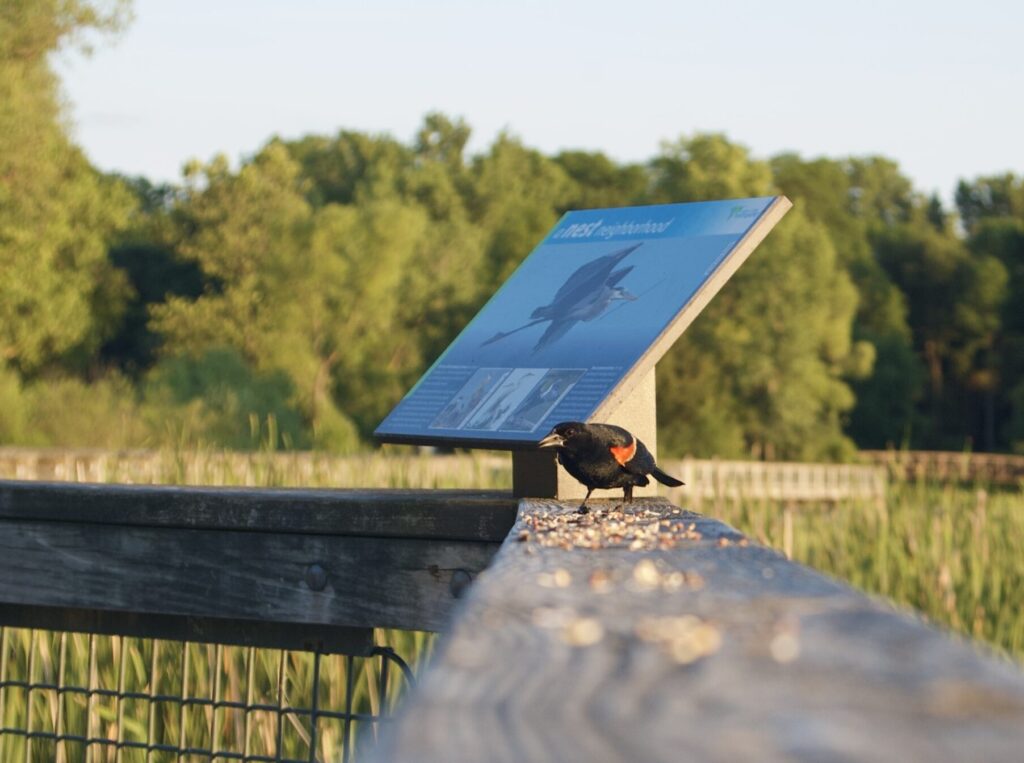This spring season, Big Rapids will host an annual event that beckons thousands of winged attendees from across the continent. The event is easily viewable and free.
For any students that are looking for an excuse to get outside this spring or need a mental health break from school or work, this might be something to try.

Bird migration has indicated the beginning of spring for thousands of years. The migration season begins at the start of March and lasts through April.
Spring migration offers opportunities to get a look at many birds that are not typically considered Michigan residents as they pass through town. Looking to the skies, visiting the Muskegon River or a forest and keeping an open ear are the best ways to take it in.
Biology professor Dr. Paul Klatt gave a few examples of the types of birds Big Rapids commonly sees upon the coming of spring.
“In the evenings, some waterfowl, like snow geese and tundra swans, will fly right over Big Rapids,” Klatt said. “You can see and hear them and it’s kind of neat because the lights from the city will reflect off their underwing and they will appear as white birds.”
Klatt goes on to mention an identifiable bird, a forest dweller.
“I always look forward to one of the earlier [migrating] warblers, the black and white warbler,” Klatt said. “They will walk up and down the trunk of a tree foraging for insects and are very vocal, they’re the ones that make the sound of a squeaky wheel.”
Klatt is a supporting staff member for the Tri-beta Biological Honors Society registered student organization and helps lead an annual birdwatching hike, which will take place later in the spring.
“We have a tradition in the spring of having a tri-beta bird outing,” Klatt said. “We all meet really early in the morning, [we] try to pass out coffee and snacks and we identify everything we see and hear.”
Klatt adds that anybody is welcome to join on the hike.
Klatt recently assisted the RSO in installing several bird boxes at a property just outside of town. The RSO plans to revisit these boxes this spring.
Tri-beta president and dental hygiene senior Kyla Buccini looks forward to the yearly event.
“Last year was great because we were able to provide binoculars for the hike so we could actually see the birds we were hearing,” Buccini said. “Attendance has grown each year, so we expect a good turnout again this spring.”
Secretary of Tri-beta and nursing senior Elise Huizingh uses the spring bird migration as an excuse to get outside.
“I love going on hikes with my friends and poorly imitating all of the bird calls we hear,” Huizingh said. “When I’m not outside, I still enjoy the migration by watching my bird feeder all spring.”
Both Buccini and Huizingh mentioned the benefits that being outside in the springtime brings and being thankful for an excuse to clear their heads.
Spring migration is a reason for students to get outside, broaden their perspectives and learn something new this semester.
Nate Mathewson is a part of Tri-beta Biological Honors Society.
